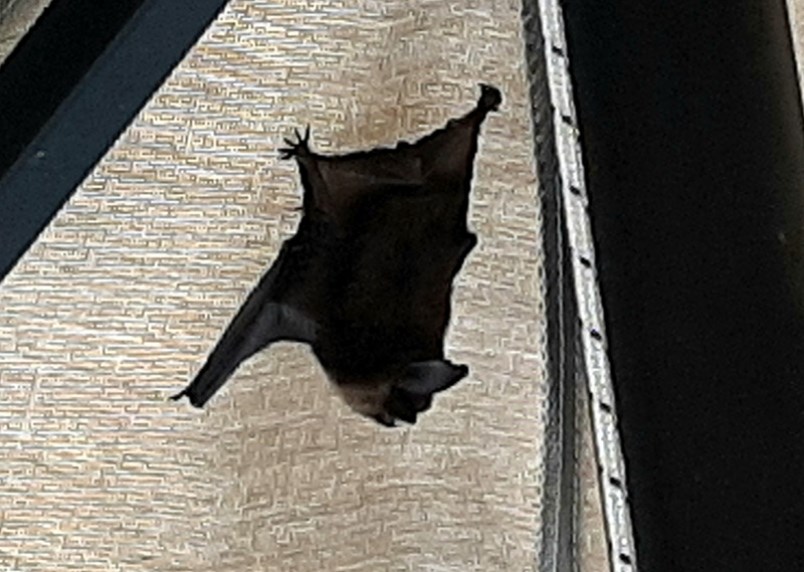If there are bats in your belfry, or even your attic, don’t panic.
That’s the message from the regional bat coordinator for the Metro Â鶹´«Ã½Ó³»and Squamish area of the .
Danielle Dagenais said young bats — called pups — that were born in June, are learning how to fly before moving out of their roosts later in the summer. Sometimes those early flights can lead to awkward landing places, like into the side of a house or a patio umbrella, she added.
Dagenais said if you find a bat in an unlikely location, such as on the ground, you should leave it alone if it’s out of the way of people or pets as they will eventually move off on their own. She added you should also not touch a bat, whether it’s alive or dead, with your bare hands because it could be infected with rabies.
“Bats in BC have very low levels of rabies infection,” Dagenais said. “But any risk of transmission must not be taken lightly.”
Recently, bats have been recognized as a valuable cog in the ecosystem for their ravenous appetite to eat insects and act as pollinators. In fact, local conservation groups like Burke Mountain Naturalists have been conducting education programs as well as erecting and monitoring bat boxes in parks at Port Moody’s Rocky Point, Colony Farm in Coquitlam and Minnekhada in Port Coquitlam.
The group also recently added a special bat “condo” at Colony Farm Regional Park that can house up to 1,000 of the small flying mammals.
The condo was designed by local naturalist Kiyoshi Takahashi. It cost $12,000 and more than 200 volunteer hours to build.

Takahashi has been a passionate advocate for bats for years and in 1995 he discovered a rare Townsend’s big-ear bat in Minnekhada Regional Park. Dagenais said it’s illegal to exterminate bats under the BC Wildlife Act, and measures to keep bats out of buildings can only be done in the fall and winter after it’s been determined the bats had been living there have moved on.
With a file from Diane Strandberg
Read more from the



